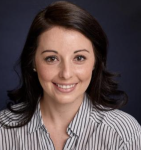The ability to analyze and derive insights from vast amounts of information is invaluable. As industries increasingly rely on data-driven decision-making, there is a growing demand for professionals with expertise in applied analytics.
To bridge this skills gap, academic institutions seek innovative ways to provide students with hands-on experience. Integrating the Curiosity Cup into curriculum has been one of the ways institutions fulfill this goal. Companies seeking SAS skills can use the competition to bring early career talent to their organizations.
So, what is the Curiosity Cup?
The Curiosity Cup, sponsored by SAS, is an annual global analytics competition that brings together teams of up to four students from universities worldwide, challenging them to apply their analytical skills to solve real-world problems. By participating in the Curiosity Cup, students gain exposure to SAS technology and work on data-driven projects that simulate real-world scenarios.
The competition is also a learning opportunity with all skill levels welcome. The competition is designed to challenge and inspire student teams by providing an opportunity to showcase their analytics skills even if they are new to data analytics and data science. With the freedom to choose their dataset, students and faculty can answer questions in an applied setting while getting feedback from industry consultants who judge the competition.
Educators can give students an applied experience by linking the competition to their curriculum. The University of Alabama’s Department of Information Systems, Statistics, and Management Science is an excellent example of how this can work. Eleven student teams at the school repurposed their data analytics projects to submit for the competition. This initiative allowed them to collaborate as a team and gain further insights into their data projects through the competition.
Participating in the Curiosity Cup inspired these students to enhance their analytical skills and apply their knowledge to real-world challenges while competing alongside teams from universities worldwide. This experience fostered teamwork and encouraged them to strive for excellence in their data-driven endeavors.
The Curiosity Cup in action
A team from the University of Maryland Global Campus (UMGC) Master of Science in Data Analytics department comprised of students Shiva Devkota and Zane Liu, alongside faculty advisor Dr. Kate Goldberg, presented a research paper titled “Comparing Classification Models of Predicting Diabetes using SAS® Viya®.” The report focused on using classification models to predict factors leading to diabetes using SAS Viya.
UMGC's paper was selected as one of the top 10 finalists in the initial round of judging. In the final round, they won the data presentation category with a video presentation of their research, which was one of three individual skills categories judged, the others being data analysis and data preparation.
Shiva Devkota expressed the significance of this achievement, stating that it validates their skills and potential contributions to the SAS programming and data analysis field.
“Winning the SAS Curiosity Cup competition is a significant achievement for me, personally and professionally,” said Devkota. “It validates my hard work, skills, and knowledge in SAS programming and data analysis and potential to make significant contributions in the field.”
Liu emphasized that their success “demonstrates that what we've learned is acceptable outside the classroom.”
The team's faculty advisor, Dr. Kate Goldberg, added that the competition provided students valuable preparation for professional settings.
“The Curiosity Cup provides students with additional opportunities to flex their data analytic skills outside of the classroom,” she said. “A great benefit of the competition was to provide students with a chance to work with other analytical software packages that they are likely to encounter in the workplace.”
Integration into curriculum: Where to start
To successfully integrate the Curiosity Cup into their curriculum, educators can use the following best practices:
- Offer coursework or e-learning: Incorporate relevant courses that cover foundational analytical concepts, statistical modeling, data visualization, and machine learning. This will equip students with the necessary knowledge and skills to compete. Using SAS Skill Builder for Students and the SAS Educator Portal offers a great start.
- Form a team: Create diverse and multidisciplinary teams to encourage cross-functional collaboration and deliver a holistic approach to problem-solving.
- Tap educators for guidance: Call on educators with expertise in applied analytics and data science to guide multiple teams of students throughout the competition. Their mentorship can help students navigate challenges and enhance their learning experience.
- Allocate necessary resources: This includes access to analytical software, data sets and technical support to help students work effectively on their projects. Reviewing past winners’ papers and videos on the SAS website can help you understand competition expectations.
Integrating the Curiosity Cup into the curriculum is a valuable strategy for educational institutions to provide students with applied analytics experience. This initiative not only enhances their analytical skills but also prepares them for the demands of the industry.
By participating in the competition, students gain practical knowledge, collaborate with peers and establish connections with professionals in the field. With the growing demand for skilled analytics professionals, integrating the Curiosity Cup into the curriculum can help students stand out as they enter the job market.
Register for the 2024 Curiosity Cup
For questions regarding the Curiosity Cup, email academic@sas.com to get connected with an academic program manager. To find out more details about the competition – curiositycup@sas.com.
This article was co-written by Rochelle Fisher and Lori Downen

